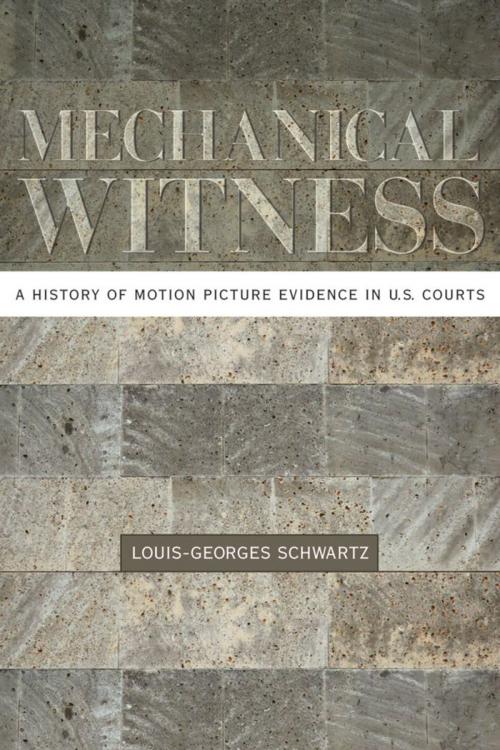Mechanical Witness : A History of Motion Picture Evidence in U.S. Courts
Nonfiction, Reference & Language, Law, Media & the Law| Author: | Louis-Georges Schwartz | ISBN: | 9780199886258 |
| Publisher: | Oxford University Press, USA | Publication: | August 26, 2009 |
| Imprint: | Oxford University Press, USA | Language: | English |
| Author: | Louis-Georges Schwartz |
| ISBN: | 9780199886258 |
| Publisher: | Oxford University Press, USA |
| Publication: | August 26, 2009 |
| Imprint: | Oxford University Press, USA |
| Language: | English |
Mechanical Witness is the first cultural and legal history charting the changing role and theoretical implications of film and video use as courtroom evidence. Schwartz moves from the earliest employment of film in the courts of the 1920s to the notious 1991 Rodney Kind video revealing how the courts have developed a reliance on film and video technologies and contributed to the growing influence of visual media as a dominant mode of knowledge formation. At the same time film and video in juridical contexts has developed a distinct theoretical legacy. The particular qualities of film as evidence both resonate with and contradict existing scholarship-focusing on economic social or aesthetic factors-which hitherto has defined film's status and cultural contribution. In the context of a trial the possible meanings of a film change from its meanings when shown in a movie theater or broadcast on television yet the public (and cinema scholars) tend to assume that the two are the same. Mechanical Witness demonstrates that we must understand evidentiary film and video's institutional specificity if we are to understand the full effects of motion picture technologies on our culture. This study sets the terms for a long overdue assessment of how the entertainment industry has shaped our film viewing practices the place of moving picture evidence in the courtroom and the social and cultural consequences of these intertwined histories.
Mechanical Witness is the first cultural and legal history charting the changing role and theoretical implications of film and video use as courtroom evidence. Schwartz moves from the earliest employment of film in the courts of the 1920s to the notious 1991 Rodney Kind video revealing how the courts have developed a reliance on film and video technologies and contributed to the growing influence of visual media as a dominant mode of knowledge formation. At the same time film and video in juridical contexts has developed a distinct theoretical legacy. The particular qualities of film as evidence both resonate with and contradict existing scholarship-focusing on economic social or aesthetic factors-which hitherto has defined film's status and cultural contribution. In the context of a trial the possible meanings of a film change from its meanings when shown in a movie theater or broadcast on television yet the public (and cinema scholars) tend to assume that the two are the same. Mechanical Witness demonstrates that we must understand evidentiary film and video's institutional specificity if we are to understand the full effects of motion picture technologies on our culture. This study sets the terms for a long overdue assessment of how the entertainment industry has shaped our film viewing practices the place of moving picture evidence in the courtroom and the social and cultural consequences of these intertwined histories.















